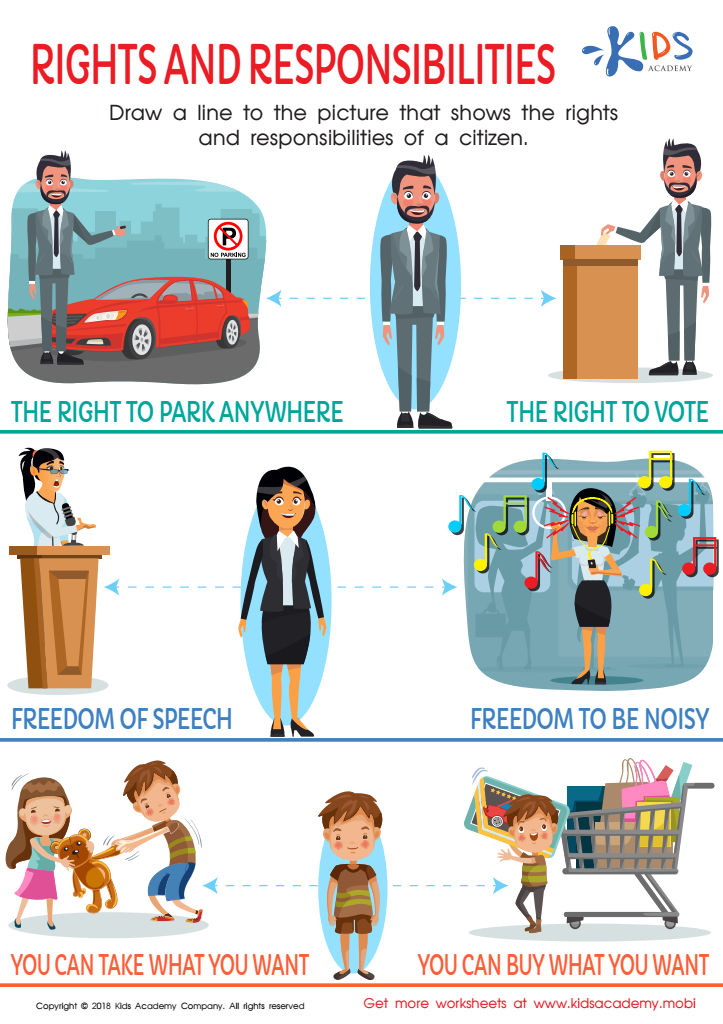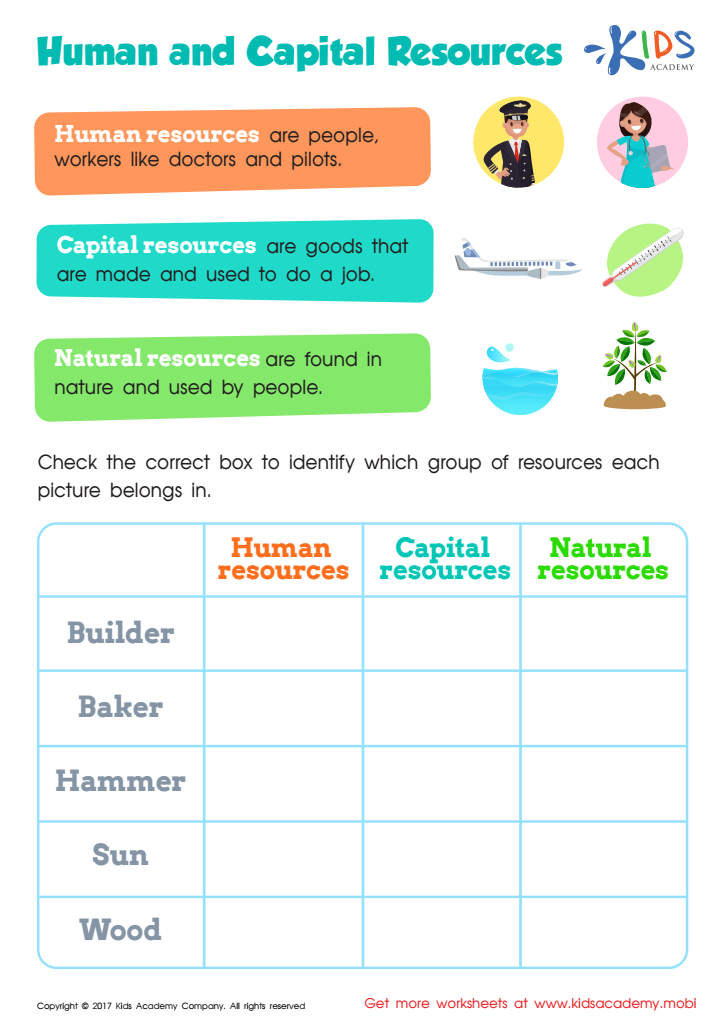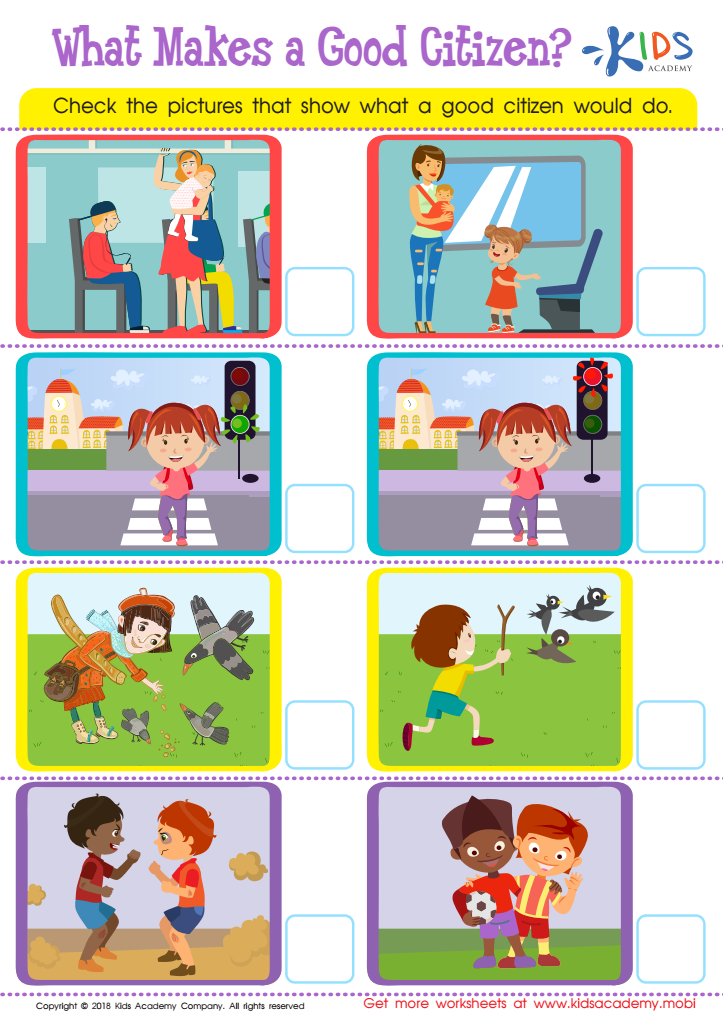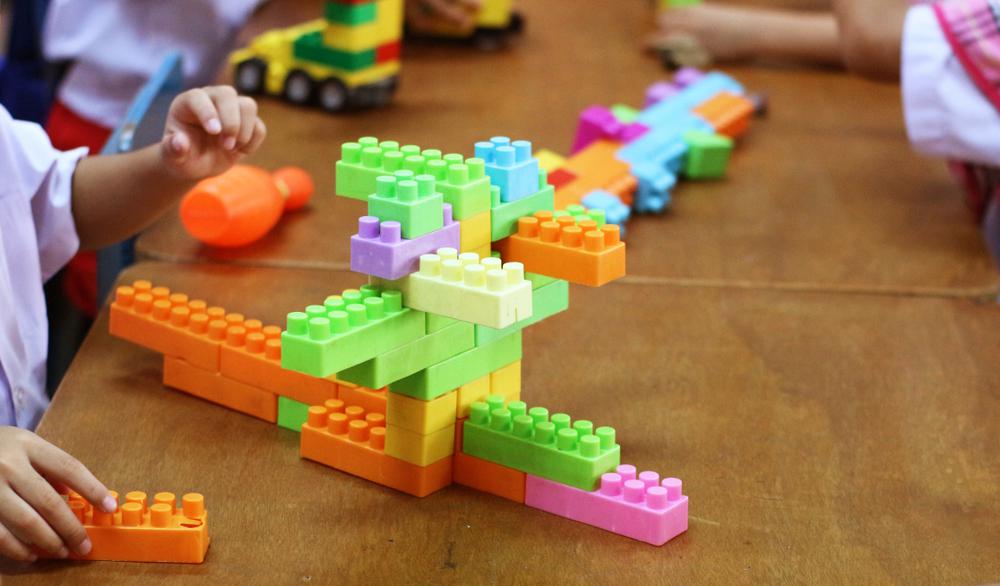Developing critical thinking Normal Social Studies Worksheets for Ages 6-8
3 filtered results
-
From - To
Our "Developing Critical Thinking: Normal Social Studies Worksheets for Ages 6-8" are expertly designed to engage young minds and foster analytical skills through engaging activities. Tailored for kids aged 6 to 8, these worksheets cover essential social studies concepts, encouraging children to question, analyze, and interpret information. From understanding community roles to exploring historical events, each worksheet promotes interactive learning and helps build a strong foundation for critical thinking. Ideal for parents and teachers seeking effective resources to enhance students' problem-solving abilities and prepare them for future academic success. Download now and start nurturing your child's intellectual curiosity!


Rights and Responsibilities Worksheet


Human and Capital Resources Worksheet


What Makes a Good Citizen? Worksheet
Developing critical thinking in early social studies for children ages 6-8 is crucial as it lays the foundation for their overall cognitive and social development. At this formative age, children are highly curious and impressionable, making it an ideal time to introduce critical thinking skills that will benefit them throughout their academic and personal lives.
Firstly, critical thinking encourages children to analyze information, question assumptions, and explore various outcomes. This helps them become independent thinkers rather than passive recipients of information. When studying social studies, which covers diverse topics such as culture, history, and geography, children learn to understand different perspectives and recognize the significance of context, evidence, and reasoning.
Secondly, early development of critical thinking in social studies promotes better problem-solving abilities. For example, while learning about community helpers, children can think about how different roles interact and depend on one another, fostering a sense of empathy and cooperation crucial for social development.
Additionally, by incorporating critical thinking into social studies, children develop essential skills like reasoning, argumentation, and the ability to distinguish between fact and opinion. These skills not only prepare them for academic success but also help them navigate an increasingly complex world, making informed decisions and contributing positively to society.
In summary, fostering critical thinking in early social studies empowers children to become thoughtful, informed, and responsible individuals, setting the stage for lifelong learning and active citizenship.

 Assign to My Students
Assign to My Students




















